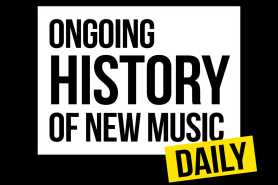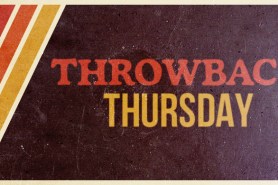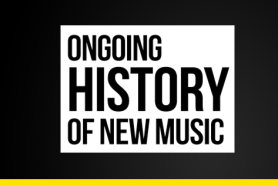The first thing I thought when I awoke Wednesday morning was that there’s now an SNL Curse. Any female U.S. presidential candidate — even one who appears to be cruising to the White House — will ultimately lose the election if she appears on Saturday Night Live. First Hillary Clinton in 2016 and now Kamala Harris in 2024.
I’m curious how music will react to the new Trump administration. Culture is always just downstream from what’s happening in society. Historically, things shift depending on whether the White House (and 10 Downing Street, for that matter) is occupied by a right- or left-wing administration. This correlation between politics and music fits in nicely with my theory of the 13-year pop vs. rock cycle.
When Dwight Eisenhower, a Republican, took over for two terms in the 1950s, American music became a lot more rebellious, manifesting, at least partly in the birth and growth of rock ‘n’ roll. And let’s not forget about the folk movement with its many left-leaning artists finding purchase with progressives.
The next two terms — John F. Kennedy’s shortened presidency followed by Lyndon B. Johnson — were Democrat. Massive social change ensued, thanks to the demands of the boomers, the Vietnam War, the civil rights movement and the fight for women’s rights. It was a chaotic time. Boomers, emboldened by the promise of progress and angry about Vietnam, began to make music that reflected their wants, needs, dreams and fears.
By the time Republican Richard Nixon took over in 1968, rock had grown very loud, and in some cases, very angry. It was during his first term that metal (Led Zeppelin, Deep Purple, Steppenwolf et al) was born, and garage rock, a precursor to punk, began to spread (think Stooges, MC5, and The New York Dolls). It was also a golden era of protest music in rock.
When Nixon resigned in disgrace in 1974, his Republican successor tried to keep the Republican lights on but ultimately lost to Democrat Jimmy Carter — but not before punk sprouted in NYC (Ramones, Talking Heads, Blondie) and then spread to London (Sex Pistols, The Clash). In many ways, punk was a reaction to the right-wing ways of government since 1968. It burned very hot and very bright with righteous anger.
The Carter years had their issues, but for the most part, people felt good enough after the Watergate nightmare to get out and party. Disco exploded. New Wave was fun and quirky. Radio was dominated by feel-good pop and rock.
That all ended with the Reagan and Thatcher years as right-leaning governments took office on both sides of the Atlantic along with a recession that pushed interest rates beyond 20 per cent. Feel-good music began to ebb while new hard and heavy genres — hardcore punk, goth, industrial, hair-and-spandex bands and crushing levels of metal — took root and began to spread. And while pop did have a moment in the latter half of the ’80s, it would not last.
The ’90s began with another year of Republican and conservative rule and young people were fed up. There was a brutal recession, the first Gulf War, and a sense among the new gen Xers that they were never going to achieve the standard of living enjoyed by their parents. Rock exploded in popularity on both sides of the Atlantic because it was the genre (along with a fast-growing hip-hop scene) best for expressing anger, fear and a desire for change. Hence grunge, more punk, industrial, Britpop and so on.
This, of course, did not last. With Democrat Bill Clinton taking office in 1992, the deeply unpopular Margaret Thatcher out of office, and a rapidly improving economy, rock’s rock-the-boat approach fell out of favour. Pop — girl singers and boy bands, especially — ruled for several years.
Then came 9/11, one of the most traumatic events we’ve ever seen. Invasions and wars followed under Republican George W. Bush. Happy, dancey music once again seemed inappropriate given the state of the world, and late gen Xers and early millennials gravitated to music that was more serious and dark. We ended up with the indie rock revival, emo, more punk and a resurgence in bands like U2, Green Day, Nine Inch Nails, Foo Fighters and Red Hot Chili Peppers.
So far, so good. But then this decades-long correlation between the popularity of rock music and right-wing administrations begins to fall apart.
You’d have thought that the financial crisis of 2008 and its aftermath would have resulted in angry music taking over the mainstream. It did not. The two terms of Barack Obama had little appreciable effect on the overall trajectory of rock and pop. In fact, things started falling apart.
Why? Technology.
When Donald Trump was first elected in 2016, I boldly predicted that rock would once again rise as a bulwark to a right-leaning America. We’d all soon be awash in fresh new metal bands, plenty of punk, and dark beat-heavy bands. Elder millennials and furious gen Zers would produce plenty of heavy rock and intense hip-hop.
Nope. It did not happen. Instead, popular music continued to splinter into not just hundreds of genres but thousands. Trump did Trump and the conservatives stumbled through the 2010s without there being any appreciable widespread mainstream musical reaction or movement.
COVID-19? You’d think that all the fear and issues surrounding the pandemic might have brought us together when it came to being on the same page with music. Nope.
Streaming has become completely entrenched in our music consumption habits. Smartphones allow immediate free access to tens and tens of millions of songs. Unlike the pre-internet, pre-streaming era, there is no centre to music, no consensus about what we should be listening to if we want to belong. We are all our own music directors, free to customize our music consumption in whatever way we want using the entire library of recorded music.
MuchMusic and MTV no longer set trends with music videos and abandoned them altogether. Music magazines have disappeared. Social media breeds one-hit wonders. Rock radio has struggled to find new superstars. Oh, there have been a few, but nowhere near the numbers we saw back in the ’90s and early 2000s. Not even close.
The 2024 U.S. presidential election exposed extremely deep and complex divisions in American society. Now that the country will be governed by the furthest right-leaning administration in the country’s history, how will music respond? Will issues like abortion and women’s health care, access to contraception, tax cuts for the rich, the influence of billionaires on national and international policy, Russia, Ukraine, China, Taiwan, Project 2025, and all the rest of it change the tone and tenor of popular music?
Maybe. The course of music has always been driven by youth. Sure, a lot of people will be angry, but let’s see if they can get together to show it. A nation — the world — turns its lonely eyes to you.
© 2024 Global News, a division of Corus Entertainment Inc.













 Ad Choices
Ad Choices